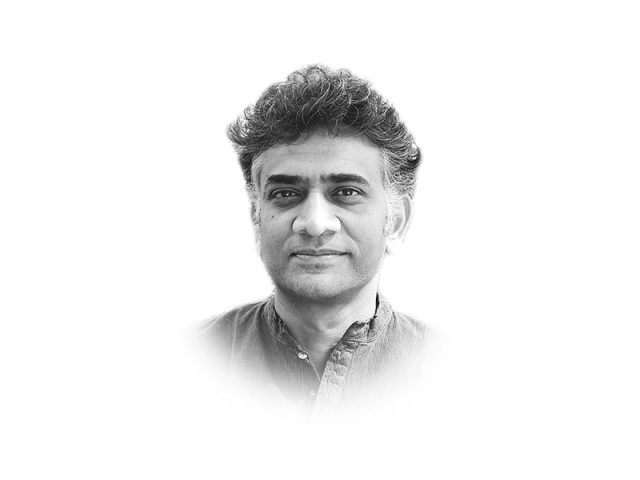Future happenings
The biggest change of artificial intelligence will be loss of autonomy of human being and by extension of governments

The writer is the editor and translator of Why I write: Essays by Saadat Hasan Manto, published by Westland in 2014. His book, India, Low Trust Society, will be published by Random House. He is Executive Director of Amnesty International India. The views expressed here are his own.
aakar.patel@tribune.com.pk
This change will be so immense, it is being felt by these experts, that humans cannot imagine what the future will be like after the intelligence is created. For example, this intelligence will be able to figure out genetic engineering and solve every problem of disease. Those of us who will be around at this point will be able to live much longer. This intelligence will be able to make itself smarter at a pace that we cannot at the moment imagine.
So when are these developments likely to happen? This is the amazing part. The experts say it will be around 2040, meaning in 24 years. Some think it will happen earlier. Even the experts who are skeptics about the technological singularity do not deny that it will come, they only say it may come slightly later than we imagine.
Already, computers are becoming smarter at a pace which is astonishing. This year, artificial intelligence understood and recreated a Nobel Prize winning experiment in under an hour. Also this year, a Google computer beat the human champion of a complex Chinese game called Go. This was not something that was expected because Go has many times more possibilities than chess. It was thought that a machine beating the world champion was far in the future.
There are other changes that arrived this year which were thought to be very far away. For example, self-driving cars. The American company Tesla already has this feature on the automobiles it sells in tens of thousands. The car identifies what is around it and can drive at a speed of 100kmph and also change lanes after sensing what is behind it. A crash in one of these cars killed the driver earlier this year but Tesla says that it has already vastly improved the technology in the last few weeks.
For many of us who are older, these stories about a strange future are not new. We were told of robots taking over jobs of humans in the 1980s when Japanese car makers automated large parts of their factories. That did not happen at the rate we feared. However, this time it is different. The reason is that information technology gets faster at a faster pace each year. One reason for this is that computing speed doubles every two years. Those of us who are 15 years old will actually notice how quickly technology is changing.
This pace means that each decade the changes are of a much higher order than they were the decade before. And we have been in the age of computers for only a few decades. This is why we must not see changes in the next 24 years as being similar to those in the last 24 years. The magnitude of change will be so great that even experts say they cannot imagine what its implications will be.
For us on the subcontinent this change that is coming will in some ways be different than it is for citizens of Europe. They do not have the problems of poverty, illiteracy and malnourishment that have persisted in our part. These problems will be easily solved by technology if we let it.
The biggest change of artificial intelligence will be the loss of autonomy of the human being and by extension of governments. What I mean to say is this: a self-driving car is better because it does not require human effort. But it is also better because it is safer and does not make errors.
If this principle is accepted, and the intelligence that is created is both of a higher order than human intelligence and has the ability to improve itself at a fast pace, then humans will have to let go control to this intelligence.
What are the implications of this? The experts say they do not know and many of them are very deeply worried because of the dangers this intelligence may post to humans. We are going through the most unusual phase of our existence as the human race. Most of us who are alive today will be around to see the next 24 years. More than 65 per cent of Indians are under 35.
Never before in our history has such profound change been so close.
Published in The Express Tribune, October 30th, 2016.
Like Opinion & Editorial on Facebook, follow @ETOpEd on Twitter to receive all updates on all our daily pieces.













COMMENTS
Comments are moderated and generally will be posted if they are on-topic and not abusive.
For more information, please see our Comments FAQ